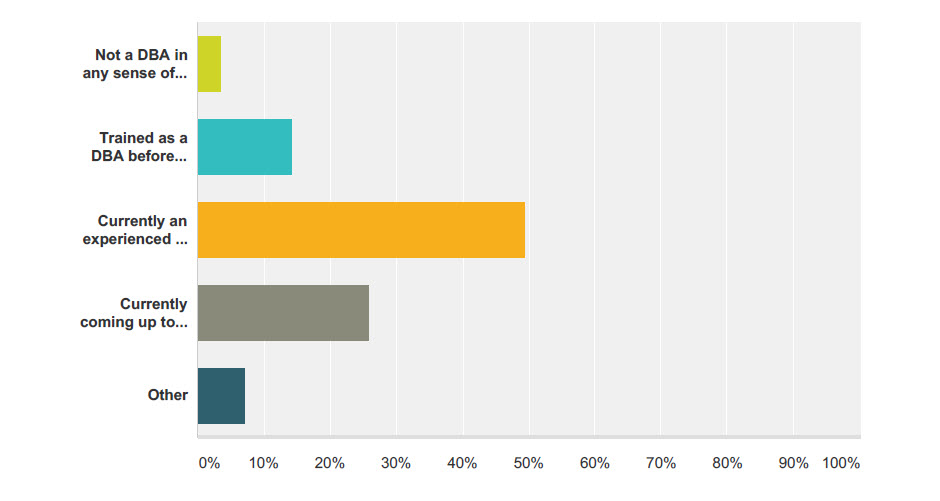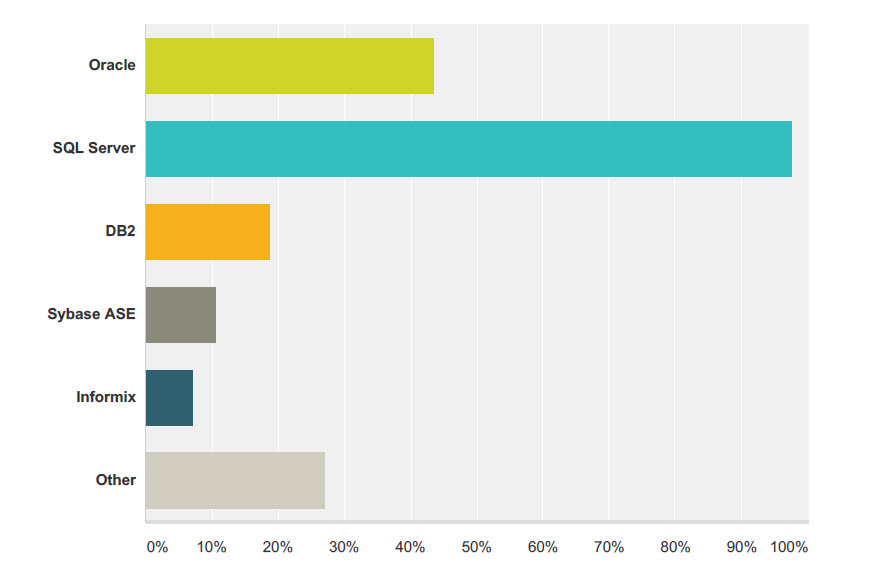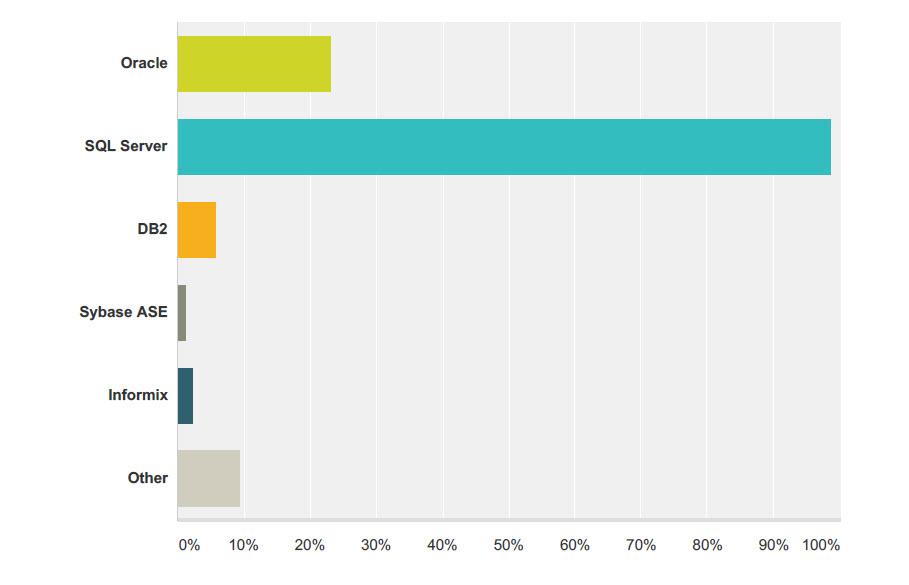We have had this survey question and a few others on the community for a few months and thought we would share some of the results. This was a brief survey of questions to gather some insights into the SQL community of users. The 4 questions were the following:
- How would you classify yourself as a DBA?
- What database platforms have you managed in any capacity during your career?
- What database platforms are you working with currently?
- What do you attribute the common situation of the “Accidental” DBA?
And here are the answers…
Question 1: How would you classify yourself as a DBA?
- Not a DBA in a any sense of the term
- Trained as a DBA before taking the first DBA job
- Currently an experienced DBA, but started as “Accidental” DBA
- Currently coming up to speed as an “Accidental” DBA
Question 2: What database platforms have you managed in any capacity during your career?
Question 3: What database platforms are you working with currently?
Question 4: What do you attribute the common situation of the “Accidental” DBA?
This was an open-ended question so the answers were varied, but here are some of those for your curiosity and enjoyment.
I was in MIS and got a chance to work as a SQL Developer and DBA at the same time
Small shop IT departments need a jack-of-all-trades
Curiosity
Lack of resources forces an expanded role
Lack of enough databases to merit a full-time DBA, no budget to hire a DBA, or the common ‘if so-and-so knows the basics, they can do it and just learn the rest as they go’
I started as a network admin and backed into the DBA job
IT employee leaves without a trained replacement
I was a developer and there wasn’t a DBA available so I got “volunteered”
DBAs and the role are misunderstood. Everybody (Developers, sysadmins, etc.) thinks they can support database servers until they have a catastrophic event occur. So once you prove adept at cleaning up other peoples’ failure to plan, you can find yourself with a new job description.
Programmers in small businesses commonly end up working on the databases.
Organizations start projects without thinking they need a DBA, which seems to happen a lot with SQL Server
Lack of company’s knowledge of what a DBA does and why/when they would need one so someone “close enough” takes the responsibilities
Hope you enjoyed reading the results of our survey and if you haven’t participated already, take 10 minutes to take the survey and share your story of how you became a DBA.


